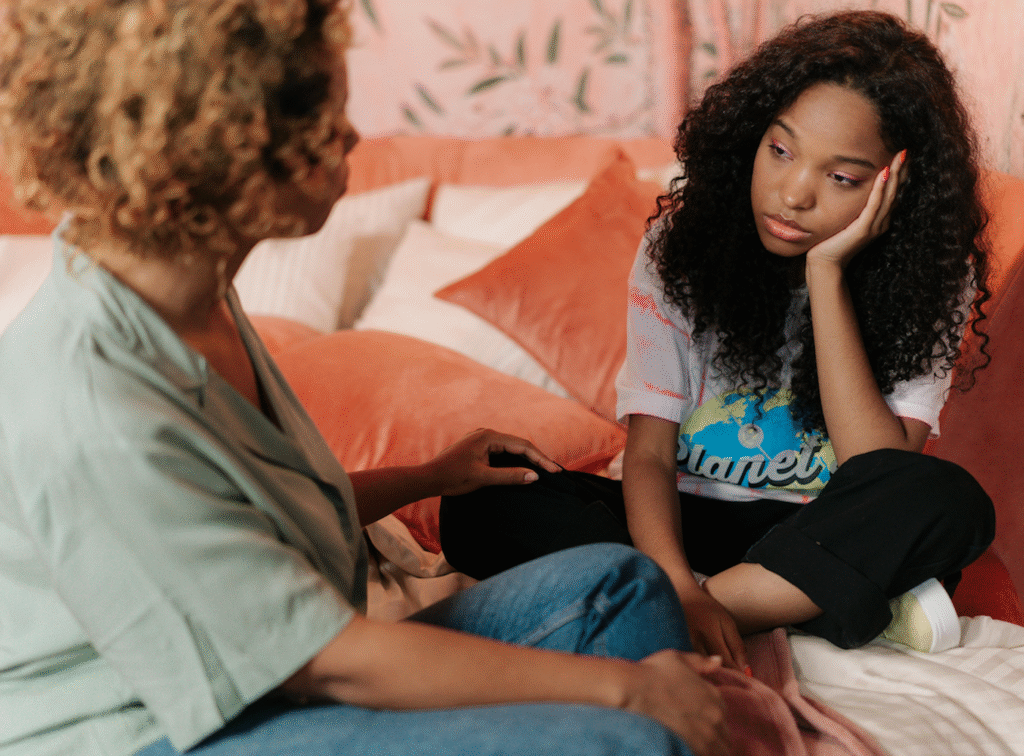DBT for Parents: Supporting Your Teen’s Mental Health
Parenting teenagers can feel like walking a tightrope. On one hand, you want to give them independence; on the other, you worry about their well-being and safety.
For many families, adolescence is a turbulent stage filled with mood swings, conflicts, and uncertainty.
But for some teens, these struggles go beyond “normal” teenage behaviour.
Anxiety, depression, self-harm, and emotional outbursts can leave parents feeling helpless and unsure of how to support their child. This is where Dialectical Behaviour Therapy (DBT) can make a meaningful difference.
At Innova Therapy, we help both teens and parents learn evidence-based strategies to navigate these challenges together.
In this article, we’ll explore what DBT is, why it’s so effective for teens, and – most importantly – how parents can play a central role in their child’s journey toward better mental health.
But first …
Parenting Teenagers Today

Parenting teenagers has always come with its share of challenges, but today’s world has made the task even more complex. Teens are growing up in an environment that is faster-paced, more connected, and more pressure-filled than ever before.
Social media amplifies peer comparisons and exposes them to constant streams of information, both helpful and harmful.
Academic demands, uncertainty about the future, and global issues like climate change or economic instability add to their stress.
At the same time, parents often feel pulled in many directions – balancing work, family responsibilities, and their own mental health – leaving less time and energy to connect deeply with their teens. This combination makes it harder for parents to know how to respond, especially when their child is struggling emotionally.
What is Dialectical Behaviour Therapy?
Dialectical Behaviour Therapy or DBT is a form of cognitive-behavioural therapy designed to help people regulate emotions, tolerate distress, and improve relationships. It’s especially effective for teens who experience emotions more intensely than their peers.
DBT focuses on four core skill areas:
- Mindfulness – Staying grounded in the present moment.
- Distress Tolerance – Managing crises without impulsive or harmful actions.
- Emotion Regulation – Identifying, understanding, and managing emotions.
- Interpersonal Effectiveness – Communicating clearly and maintaining healthy boundaries.
Here’s an example:
Why Parents Are Key to DBT Success

While DBT equips teens with skills, the home environment plays a huge role in whether those skills stick. Teens spend most of their time outside of therapy, and parents are the ones who can reinforce progress in daily life.
Here’s another example:
This simple shift – acknowledging instead of dismissing – helps Ethan feel understood and more willing to use his DBT skills.
Parents aren’t expected to be therapists, but they can be role models and guides in using DBT strategies.
Practical Ways Parents Can Support Their Teen
Here are some effective strategies, with examples of what this looks like in real life:
Attend Parent Skills Training
Many DBT programs include sessions for parents. Learning the same tools as your teen ensures consistency.
Example:
Encourage, Don’t Pressure
Teens often resist when they feel pushed. Encouragement helps them build confidence without adding pressure.
Example:
Communicate Openly and Calmly
DBT emphasizes effective communication. Parents can reduce conflict by practicing active listening and using “I” statements.
Example:
Celebrate Progress – Big and Small
Recovery isn’t linear, and small wins matter. Recognizing effort keeps teens motivated.
Example:
DBT for Parents
Parenting a teen with mental health struggles can feel isolating, but there is hope. Dialectical Behaviour Therapy gives both teens and parents the tools to better understand emotions, handle stress, and build stronger relationships.
At Innova Therapy, we take a family-centred approach. We provide DBT-informed therapy for teens while also offering guidance to parents so they feel empowered and not left out. By practicing DBT together, parents not only support their teen’s healing but also strengthen the family bond.
Our clinicians focus on building practical skills that can be used in everyday situations – whether that’s a meltdown before school, a fight with a sibling, or managing the stress of social media.
We believe healing happens not just in therapy sessions, but at home. When parents and teens learn DBT skills together, it strengthens the family unit and creates an environment where mental health can thrive.
If you think DBT could help your family, reach out to Innova Therapy today. Together, we can create a healthier, more supportive path forward for your teen.






